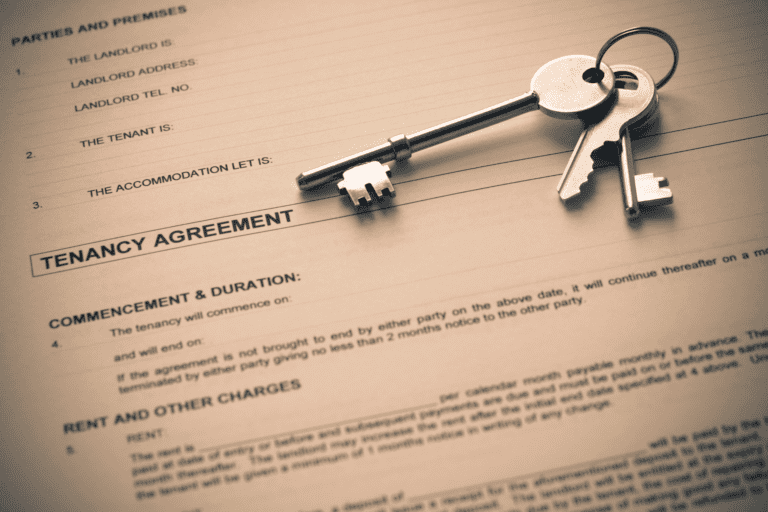As a landlord, you may be in a position where you feel you need to increase your tenants’ rent to cover rising costs or improve your cash flow. However, it can be a contentious issue and cause friction with your tenants, who may not be happy with paying more for the same property. So, how can you increase your rent without losing tenants or damaging your reputation?
Ian Speirs, our lettings and property management officer, which 10 years’ experience in the property sector talks us through how to increase rent without losing tenants with a couple of recommendations that will help guide you:
Know the market
At the very beginning of your journey, you should do some research on the market conditions and average rents for similar properties in your area. Online tools such as Rightmove or Zoopla can be used to compare the rent you’re receiving with others and how competitive the market is right now. Alternatively, a good property manager will also be able to assist you with your market research and help to ensure you get a realistic return on your investment. When valuing your property, it’s also worth considering factors like location, amenities, size and condition of the property. Again, a good property manager will take these factors into account when helping to value the property. If the rent is already on the high end of the market, you may have less room to increase without losing your tenant. On the flipside, if your rent is below the market average, there may well be more leeway to raise it without affecting your chances of your tenants moving on.
Follow the law
It’s important that you consider the legal implications as to when and by how much you can increase. If your tenant has agreed a fixed term contract with you, you’ll have to honour the agreed rent for that duration. On occasion, particularly those tenancies beyond 12 months, there may well be a rent review clause in there that can guide both landlord and tenant as to how much the rent can be increased by and at what point.
If your fixed term tenancy is coming to an end, you may elect to renew the tenancy again for another fixed term at a new price. This will, of course, be at a mutually agreeable rate as both tenant and landlord will need to sign the new agreement.
If your tenant is on a rolling periodic contract, you’re able to increase the rent once a year. Whilst it is always better to discuss this with your tenants, they don’t have to formally agree to an increase.
Communicate clearly and respectfully
One of the most important aspects of increasing rent is how it is communicated to your tenants. You should always communicate the increase in writing, even if you’ve discussed it in person or by phone first. If your property management company handles your rent collection, they should be able to assist you in communicating a rent increase to your tenants. If you collect rent yourself, here’s some content that may soften the blow:
The current rent amount and the new rent amount
The effective date of rent increase
The reason for the increase (not always necessary, but may help your tenant understand)
A reminder of the terms and conditions of the tenancy agreement relating to the rent
Thanking the tenants for understanding and cooperation and being a good tenant
Of course, this is not a comprehensive list of everything you need to consider from a legal point of view. Contact the team at Three Sixty Living for specific advice tailored to your needs and to ensure you have covered all the bases before you mention a rent increase to your tenant.
Negotiate if necessary
On occasion, despite your best efforts, your tenants may not agree with your rent increase and may try to negotiate a lower amount or some concessions. Should this be the case, you should be prepared to negotiate and find a compromise that works for both parties. For example, you may offer to lower the rent slightly in exchange for a longer tenancy term or you may agree to make some improvements, upgrades or repairs to the property that your tenants have requested. You may also offer some alterative incentives and perks to your tenants perhaps a gift card or a referral bonus. The key is to be flexible and creative to show that you value your tenants and want to keep them happy.
Be prepared for your tenants to move out
Sometimes, a rent increase, however modest, can encourage a tenant to move out. It may be the case they’ve found a better deal elsewhere or are facing financial difficulties or you’re just not able to come to an agreement, in which case you should respect their decision and follow the proper procedure for bringing a tenancy to an end. You should also start looking for a new tenant as soon as possible in order to minimise the dreaded void period and loss of income. It will always be worth reflecting on whether the rent increase you’re looking for will unseat a good, loyal tenant. It may be the case that you can get another tenant to pay a higher rent, but that doesn’t always guarantee the quality of that tenancy.
Increasing rent can be a challenging task for any landlord, but it can be done successfully by following these tips.
Three Sixty Living
Three Sixty Living are an award-winning, profit-for-purpose Property Management company based in the heart of Stockport and serving Greater Manchester.





